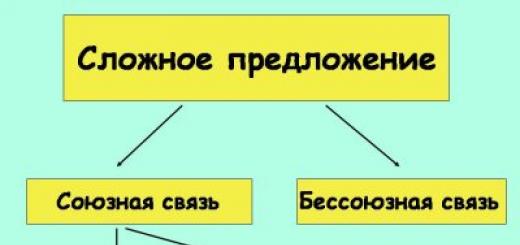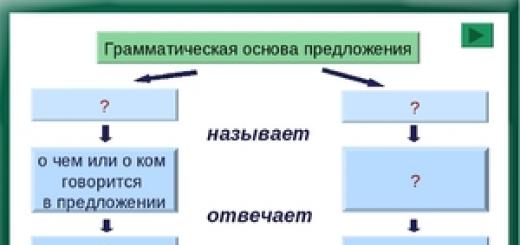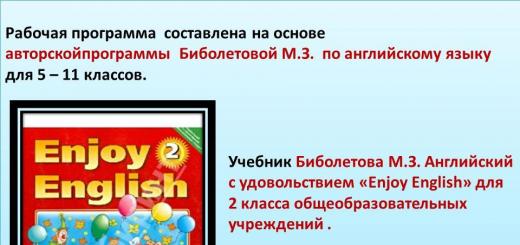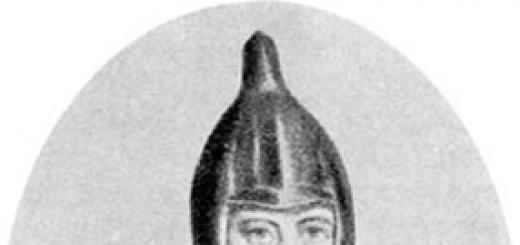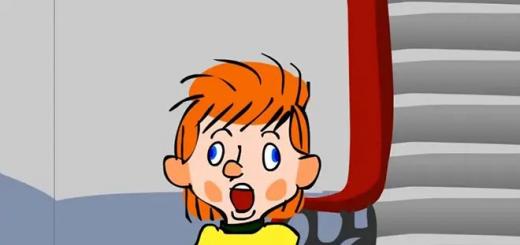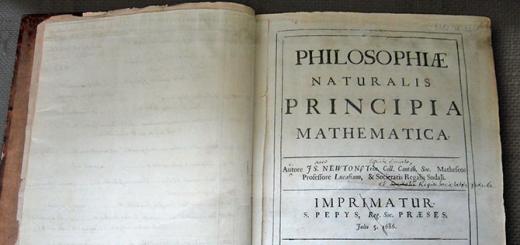This is a fairly common phrase used to explain causes or phenomena. “Because” is, at first glance, a very simple expression. Moreover, it is replaced by other particles:
- because;
- because of that;
- due to.
These phrases help diversify your speech and make it more flexible. But there are cases when the use of this union cannot be avoided. The only way to always write it correctly, with proper punctuation marks, is to fully study the origin, rules, and spellings. This approach will help to build complex sentences correctly, and make written and oral speech more educated and competent.
“Because” together or separately?
This phrase is a compound union and a set expression. Many are wondering how to spell “because” together or separately? The most common mistake is to write this expression together. This is contrary to the rules of the Russian language. A hyphen between phrases and variations like “because” are not allowed.
"Because" connects the main and subordinate parts of the sentence. To check spelling, a question is asked to the subordinate part. She must answer the question why. If posing such a question is logically possible, two-word spelling should be used (i.e. because). In situations where the formulation of such a question is impossible, the expression is written in three words (ie, by the fact that). In the second situation, this phrase is no longer a complex union, but a combination of a preposition and a pronoun, as well as the union what.
Because the comma and spelling
Separating the union with punctuation marks raises many questions. A comma before because can be placed either before a phrase or inside it, dividing the union into two parts. It is mainly used to link the main and subordinate parts in a sentence. For example:
- "She doesn't eat fried food just because she's healthy."
The main spelling problem is the correct placement of commas. The distribution of commas determines what the author focuses on. The emphasis may be on the result or the cause. Examples:
- “He beat me because he trained more” (emphasis on the result);
- “I don't like cats because I'm allergic to them” (emphasis on the cause).
The desire to write because with a hyphen arises from the similarity of pronunciation with the particle that is written with a hyphen with pronouns and adverbs. But because it is a compound union and does not require a hyphen between parts of the expression.
The division of the union leads to a scatter of its components in different parts of the sentence. “Because” usually leaves the main part of the sentence, and “what” - the subordinate one.
When dividing the union, therefore, it is included in the main part of compound sentences. This is verified by asking a question. If the subordinate part answers the questions why or for what reason. Example:
- “He started coughing and choking because he left his inhaler at home” (For what reason?);
- “The girl didn’t go to the theater with him because he doesn’t take care of himself” (For what reason?).
The union must be divided into two parts if it is preceded by a particle not, there is an introductory word, or it is included in a parallel construction. Examples:
- They weren't friends because he had a lot of money (partially not);
- We bought the ticket only because this train was going to be exciting (particle to enhance);
- She was sad, probably because of disagreements with her friends (introductory word);
- I love her because she understands me, and even more because she supports my undertakings (Parallel construction).
A compound union is not split if it is located at the beginning of a sentence. Such proposals are usually incomplete. For example:
- “Because I got older”;
- "Because I respect her."
Writing in English
The closest analogue of this expression in spoken and written English is because. In conversations, it is also shortened to ‘cause or ‘cos. Another simpler analogue of the same phrase is for. This analog has some limitations in writing. This particle is usually used not to explain, but to provide additional information.
- This hunt shouldn't take long, because our dogs found foutprints. - The hunt will not take long, because the dogs have smelled the trail
- The shouldn't stay in that house, because it's haunted. “They shouldn't have stayed in this house because it's cursed.
- She was a little nervous, for it was the first time she stayed with his sister - She was a little nervous because for the first time she was alone with his sister.
- We took a cab for it was rather late.
In writing in English, these particles are separated by commas, just like in Russian. This applies to both the for particle and the because particle.
You need to know the spelling of these words.
Like many derivative service parts of speech, the word “because” raises many questions: is a comma needed, where is it placed, if necessary (before or after “because”), is the word “because” distinguished by commas on both sides. To answer these questions, we must turn to the meaning of the union in this sentence.
"Because" is separated by commas
Before a phrase
The word "because" is a subordinating conjunction, it connects parts of a complex sentence: it attaches a subordinate clause of the cause. So the answer to the question, before "because" is a comma or not, is obvious. Of course, a comma is needed before “because” if the whole combination is a union. It can be replaced by the synonymous conjunction "because".
- We could not even move, because the dried leaves rustled loudly from our movements.
- Now it is pointless to talk about it, because nothing can be changed anyway.
After the word "because"
However, it is important to determine where to put commas, because this combination can be separated by a comma in some cases.
1. A comma is placed after "because" if there is a negative particle "not" before it.
- I didn't do this because I don't love you.
- He didn't go to the party not because he didn't want to.
2. The sign appears after “because”, if there are any reinforcing or restrictive words: “only”, “precisely”, “perhaps”, etc.
4. Finally, a comma after "because" is placed if the sentence contains a list of reasons.
because or because
How to spell correctly?
The word "because" is always written only separately - because .
Word spelling rule
To understand how this expression is written, let's figure out what parts of speech it consists of.
Expression " because"is nothing more than a complex union.
We can explain the erroneous version of the continuous spelling by the fact that this expression is on everyone's lips. And since it is pronounced in one breath, then I want to write it together. However, this is not correct.
Compound union " because"consists of two separate words" because" and " what". Some manage to insert a hyphen between them, while confusing the last union with the particle " then". In some sentences, depending on the context, this phrase should be written in three separate words. For example: The character of a woman can be judged by what lies in her purse. In such cases, the expression because" is presented as a preposition " on', pronouns ' to that"and union" what».
In order to distinguish between two different expressions, one should ask the question "why?". If a sentence with a phrase gives an answer, then this is a compound union, which is written in two words. If the answer is no, then this is a phrase that should be written in three words. It is also very important to correctly highlight this union in writing.
There are a number of rules about where exactly you need to put a comma. Briefly, they can be defined as follows:
- if the essence of the sentence is focused on the reason, then a comma is placed before " what»;
I have not rested for a long time because I have a lot of work.
- if on the result - a comma is placed before " because»;
She liked you because you acted naturally.
In all cases, the expression because' is written separately.
Examples
- I didn't visit you because was already late.
- We never pick mushrooms in the forest because we just don't eat them.
- Alena walked all day in the park, because didn't want to go home.
Many people have various difficulties with the use of the Russian language in speech and writing. The question of how to spell "because" is one of the most common confusions.
This union is very common in speech, and perhaps that is why they make especially many mistakes in it. They can turn out to be both spelling and punctuation (where exactly a comma is needed here can be difficult to decide). Let's figure out how to write "because" correctly, and clarify where to put commas.
When the union is applied: main cases
How it is written and how this combination is applied is a rather complicated question. Let's start by defining the part of speech.
Before us is a complex (or composite) union. He usually connects two sentences into one, and thanks to him we can understand the reason for what is happening. As a rule, it occurs in complex sentences. These syntactic constructions consist of several parts - the main one and one or more subordinate ones.
Spelling "because"
The named union consists of two words that contain 5 consonants (p, t, m, h, t) and 4 vowels (o, o, y, o). The first word consists of three syllables, where the stress falls on the last of them, the second - from one. In the first word, the letter "o" is written in both unstressed syllables.

How do you spell "because" - together or separately?
Now we will figure out how to write “because”: together, separately, or maybe with a hyphen?
The words that make up this union are always written separately. There can be no continuous spelling, since these are two different words. A common mistake is when they are written with a hyphen. Obviously, this is caused, first of all, by the similarity of the word “what” with the particle “-something”, which is written with a hyphen (an example here is the word “because”).
To avoid such a mistake, compare the two sentences in the example above. Please note that these words in them have slightly different meanings:
- Last year I got sick with bronchitis. That's why I quit smoking.
- I quit smoking last year because I got bronchitis.
When is "by that" written separately?
For many, “because” and “because” are similar words, although in meaning this is far from being the case. They have completely different meanings. In the first case, the sentence mentions those specific objects or characteristics that are emphasized. For example:
- I immediately concluded that the girl was not rich. It was noticeable by what she wore.
In this case, those things (clothes) that the girl wore were mentioned. That is, by clothes, the observer can tell how well-off a girl is. There is no reason here, but objects are mentioned.
One more example:
- A person's preferences can be inferred from what he buys.
This sentence can be rephrased as follows - according to the things that a person buys, one can draw a conclusion about his preferences.
In the second case (when “because” is written together), the reason for some event is revealed. That is, you can ask the question "why?" and immediately answer it. In this case, the union can be successfully replaced with synonyms “due to”, “because”, “because”, “after all” and others. For example:
- I left work early because I felt unwell.
In this case, the phrase will look quite organic when replacing the conjunction “because” with another one: I left work because I didn't feel well.
One more example:
- I don't have money because I spent it.
This phrase does not change its meaning when the union is replaced by the word "because": I don't have money because I spent it.
Punctuation

The greatest difficulty is the question of the use of punctuation in sentences with this union. Usually a comma is placed before it. For example:
- I don't know where he went because he didn't tell me about it..
Here you can ask the question: "Because of what I do not know where he went?". And answer him: “Because he didn’t tell me.” That is, we have two sentences that are combined into one by a subordinating union.
- We got very wet because we got caught in the rain(What caused us to get wet? The reason was the rain.)
- I don't have a phone because it was stolen(Why don't I have a phone? Because it was stolen).
There are cases when a comma is placed before the second word of the union and is not placed before "because":
- With a meaning-enhancing particle (e.g. "only"): I liked him only because he treated me with great tenderness.
- With an introductory word such as "probably", "should", "probably": They didn't come, probably because they were very busy.We never met, probably because he left before me.
- With a particle of negation "not" before the union: I'm not late because I got stuck in traffic.
Outcome
The Russian language is rather complicated in terms of spelling and punctuation, but this does not at all justify, for example, the execution of documents with errors.

So, every self-respecting person should strive to speak and write correctly. This article hopefully helps you. For convenience, we will list again how to spell "because" correctly:
- The named union is always written separately.
- A comma can be placed both before and inside it.
- The words “because” and “because of that” have different meanings and are spelled differently.
Russian language
How to put a comma with the union "because"?
2 comments
Understanding how to correctly put a comma in the union “because” is simple. There is a misconception that a comma will always be inserted before “what”, this is not so, there are exceptions.
It is unreasonable to repeat other people's mistakes, you need to understand the designs. There is no comma after the union "because" and the rules do not mention this.
Comma in conjunction "because"
It is placed before the word and therefore in the middle between words, but certain conditions must be met for this. What is the main idea of the sentence?
What should the reader understand first?
When we pronounce words, we pause and use intonation to express all punctuation marks. In oral speech, we do not think about how to pause, they are formed on an intuitive level.
Written speech is devoid of emotional outbursts and signs help to correctly determine the mood or essence of the spoken phrase. They affect people's perception of information. With the help of signs, you can understand how the author wants to convey his emotions to us in the text.
comma before because
Putting a comma in the right place will not change the essence of the sentence.
- He was walking along the road and stumbled because he did not see a large stone.
Here is the reason: he stumbled because he did not see.
- He was walking along the road and stumbled because his legs were tired and the pavement was occupied by a car.
In the second sentence, we confirm the action: stumbled due to tired legs. If we put a comma before "Because", then the essence of the sentence would change.
If you compose sentences in such a way that you want to explain the first action of the sentence with a participial turnover, then a comma is put after that.
- He went outside for a walk because his head needed fresh air.
- We are walking on this bridge because it was recently repaired.
- Marina is dancing because she does not see herself in another profession.
Now let's look at examples of sentences that are exactly the same, but punctuation marks can be put in different places. And the essence of the proposals will change dramatically.
Example 2
- She loved him because he was always there for her.
- She loved him because he was always there.
Commas placed in different places in the same sentences change its essence. In the first option, it is appropriate to ask the question, why did the girl love the guy?
He was always there. In the second case, it is said that the girl loved, and the main emphasis is done on the fact of the existence of love, but for what, is already of secondary importance.
After reviewing several examples, we found out that a comma can be placed in different places depending on the essence of the sentence.
Where is the comma placed in the conjunction "because"?
In the rules, we put a comma after the word because, and various particles are added, and a sign is placed before because.
- Particle "Not" before "because":
She loved him not because he was handsome and smart. - Before "Because" introductory words or participles, separated by commas on both sides:
He was walking along the road and stumbled, as it turned out, because he did not look at the road.
As it turned out - an introductory design. - A comma is placed before “What” in the “because” construction, if a special clarifying particle is added before the union, which creates a restrictive or expressive character of the sentence.
He was walking down the road and only stumbled because the sidewalk was occupied by a parked car.
Just a clarifying particle. - If the sentence has several homogeneous members, then after "because" a comma must be placed.
She loved the guy because he was brave, and also because he was handsome and smart.
In all the above 4 cases, A comma must be placed before "what".
If an action is expressed, then it is followed by an explanation of the reason for this action, then a comma is most often placed before the “because” construction.
So we looked at a few examples that will help you better understand the popular union. You can also get acquainted with the.




